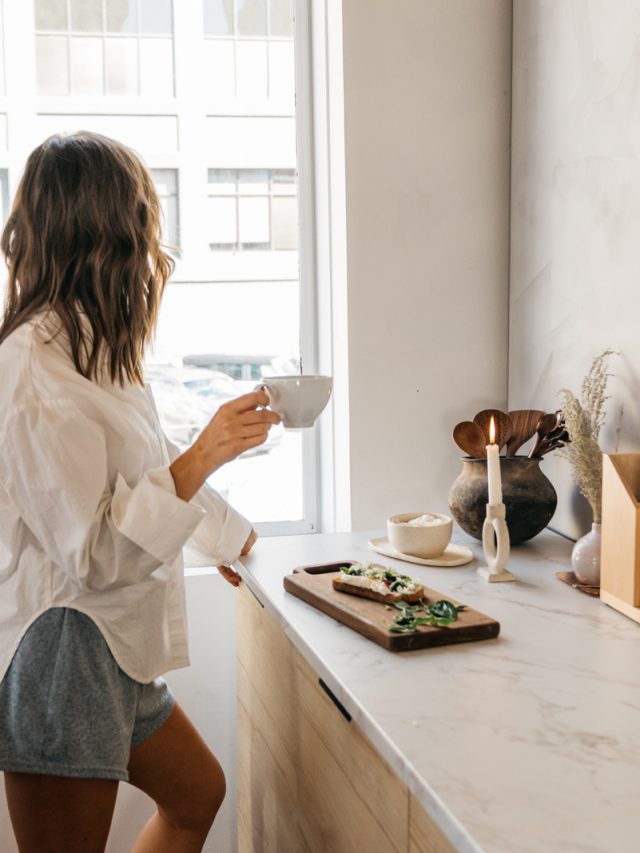Currently feeling bloated? There’s a tea for that. Can’t shake your stress? There’s a tea for that. Craving a boost of energy? There’s a tea for that. Need immune support? There’s a tea for that. Have a sore throat? There’s a tea for that. Want a new morning ritual? There’s a tea for that. We’ll halt there. So, yes, there’s a tea (or many) for every occasion or ailment. Suffice to say, we’re tea enthusiasts. Today, we’re deep diving into all things black tea. Specifically, is black tea good for you, the benefits of black tea, and how to supercharge your cuppa.
Featured image by Riley Reed.



What is black tea?
You probably know it as English Breakfast, Early Grey, sweet tea, or iced tea. The one thing they all have in common? They’re made using black tea. Red tea—or black tea as many of us know it—is the most widely consumed type of tea in the West. (More on its origins, below.) Frequently consumed with dairy and sugar, black tea leaves are the most heavily oxidized of all the tea types. Meaning, black tea generally has the highest levels of tannins, caffeine (a classic pick-me-up!), and a strong flavor.

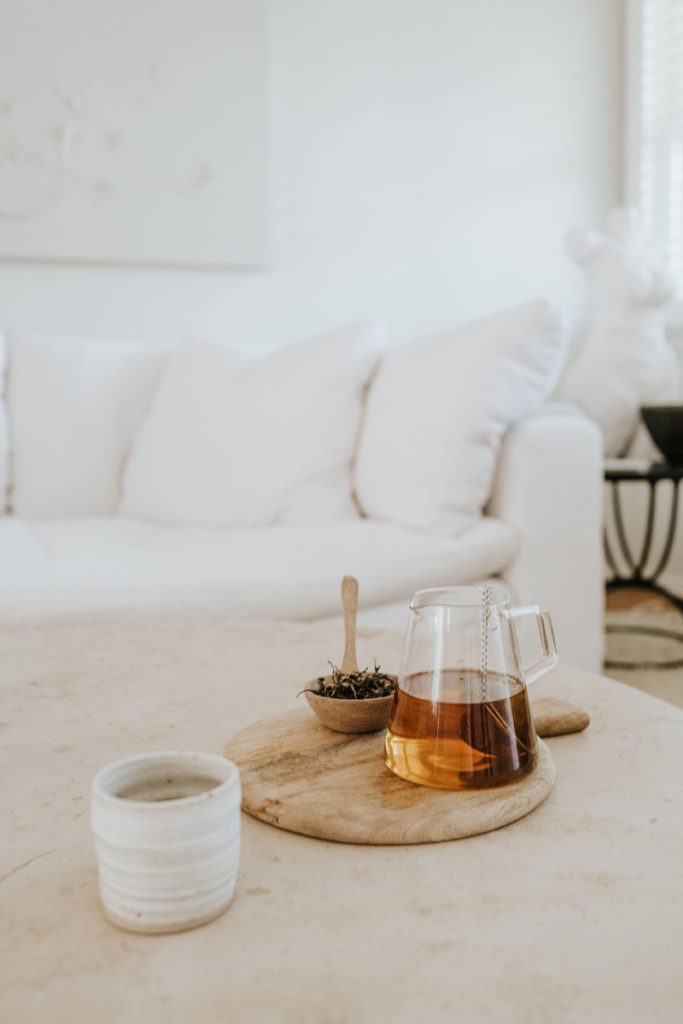
Black Tea: A History Lesson
Black tea hails back to the Qing dynasty. Come 1610, the Dutch brought it to Europe. Demand for tea leaped in the 1700s, as England expanded sugar imports. By 1800, the English were annually consuming almost three pounds of tea—and 17 pounds of sugar—per capita. Thanks to sugar, the market for strong black tea spiked. By 1911, black tea became the most popular tea sent to Europe and America. Keemun (Qimen) black tea is one of Europe’s most well-known black teas. Fun fact: this tea is known as the “Queen of Black Tea” and is a favorite of the British royal family.

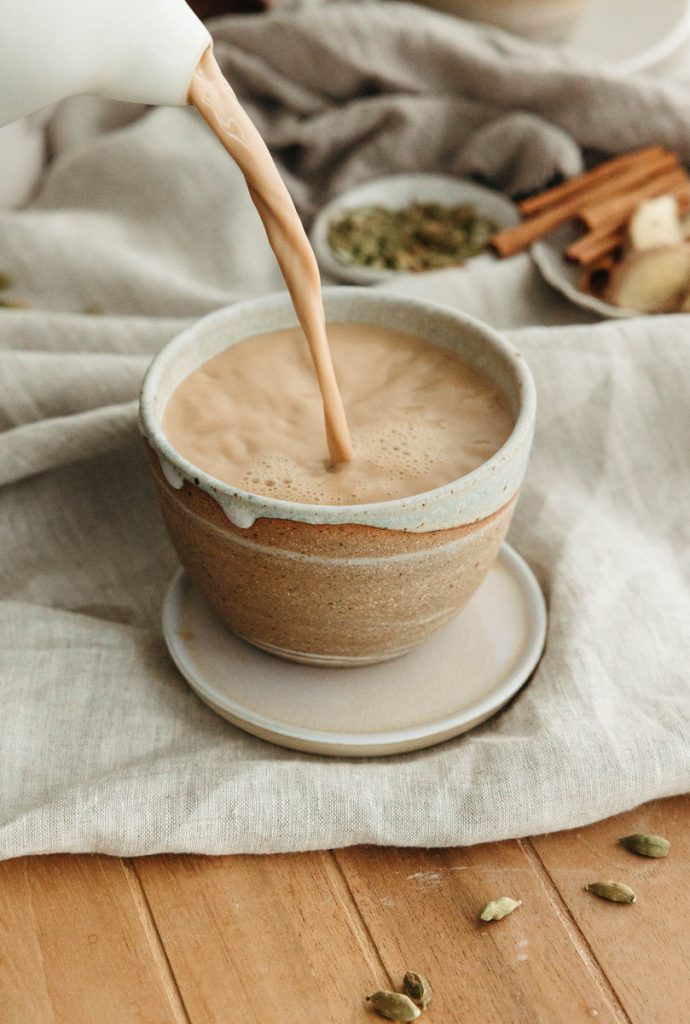
How is black tea processed?
Believe it or not, all tea comes from the same plant. From oolong to black tea, all caffeinated varieties hail from the Camellia sinensis plant. So, what makes black tea different from other tea types? How it’s processed. Black tea leaves fully (or mostly) oxidize before they’re heat-processed and dried. As they’re being oxidized, oxygen interacts with the tea plant’s cell walls. This turns the leaves a dark, rich color—in part, what black tea is famous for. Oxidation also alters the flavor profile of the tea. Hello, malty, fruity, or even smoky notes in your mug of black tea.

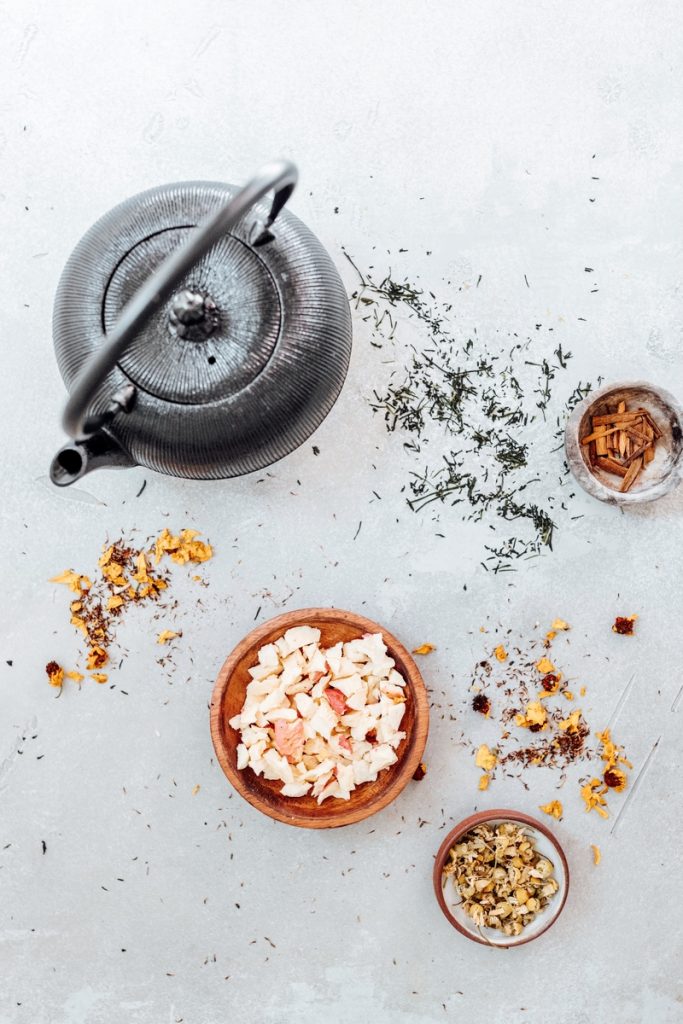
Orthodox Vs. Non-Orthodox Black Tea
Black teas are typically produced using one of two methods: orthodox and non-orthodox. Regardless of the production method, black teas are always graded and sorted. Sorting them for uniformity is crucial—in turn, the flavor of the tea remains uniform, cup to cup.
Orthodox Processing
This method was originally developed by the Chinese. It strives to preserve the integrity of the leaf—whether by hand or by machine. A single batch of black tea is completed within a day using this method.
Non-Orthodox Processing
This method use machines to crush leaves into small pieces in a timesaving, high-efficiency manner. These pieces easily fit into commercial tea bags, unlike its orthodox counterparts. A single batch of black tea can be completed in just a couple hours.


Black Tea Naming Conventions
Before we answer the question—is black tea good for you?—let’s talk naming conventions. What most of us call “black tea” is known in China as “red tea” (hong cha). This is based on the reddish color of the brew. However, the South African tisane rooibos is often referred to as “red tea” as well. To add more confusion to the kettle: there is another kind of Chinese tea called “black tea” (hei cha). In the interest of keeping things simple, below are three black tea naming conventions.
Black tea: Refers to tea that generally has a bold flavor, dark color, and high tannin content due to complete oxidation of the leaf before firing. This is the most widely consumed tea in America and Europe.
Dark tea: Refers to a category of teas historically produced in China that have gone through a secondary fermentation process. Shou/ripe pu-erh is the most famous dark tea.
Red tea: Refers to rooibos or honeybush, which are grown in South Africa. They are antioxidant-rich, caffeine-free herbal infusions.

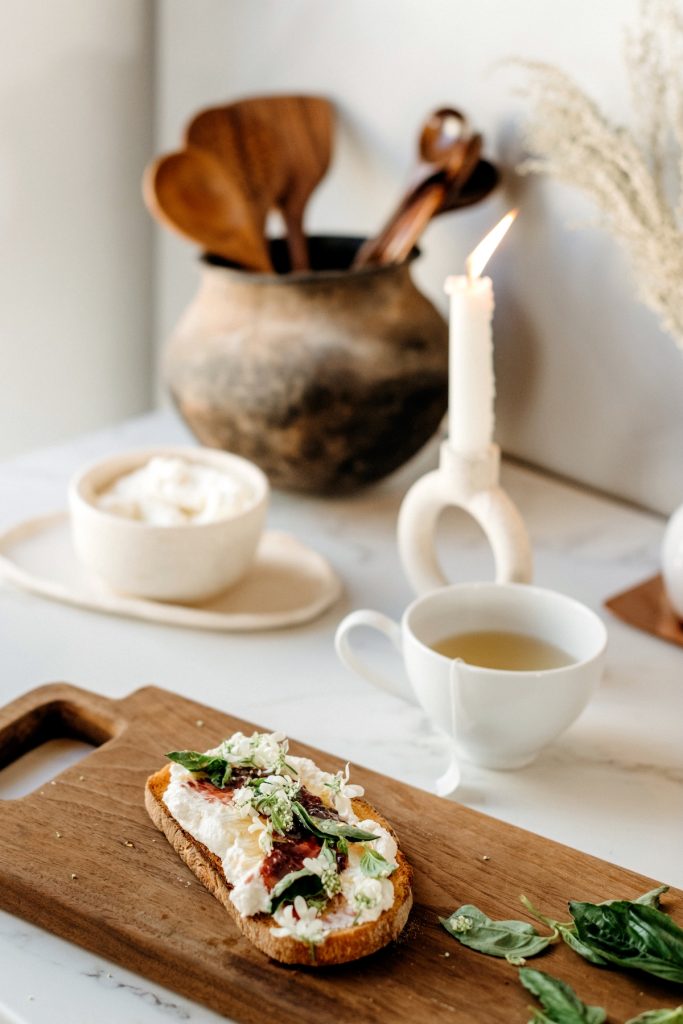
What is the best way to store black tea?
Black tea can be stored for long periods and improves with age. However, caffeine levels tend to diminish naturally over time. Choose a porcelain or glass container placed on a shelf in your pantry. The more airtight the container, the better, as tea easily absorbs odors.
Power Up Your Black Tea With These Superfoods
Though black tea has less caffeine than coffee, it brings a lot of other important compounds to the table, like L-theanine—an amino acid known to calm the mind. Want to get even more bang for your buck? Consider adding these superfoods to your mug of black tea.
1. Ghee
For brain food and anti-inflammatory properties, swirl in a spoonful of ghee—grass-fed, if possible! Ghee is clarified butter, meaning it has minimal lactose (which typically triggers a dairy allergy). It’s rich in blood sugar-friendly fatty acids and vitamin K. This is a delicious substitute for creamer.
2. Coconut Oil
Instead of ghee, opt for coconut oil. Coconut oil contains a type of saturated fat that is easily digested and converted to energy. Recent studies suggest that coconut oil improves memory, energy levels, and digestion.
3. Grass-Fed Collagen
Collagen is an essential building block for life. But as we age, our collagen production slows. In part, this is why we get wrinkles and joint pain. By regularly adding a grass-fed source of collagen to your tea, you can improve the condition of your skin, hair, joints and gut. Don’t worry, you’ll hardly taste it!

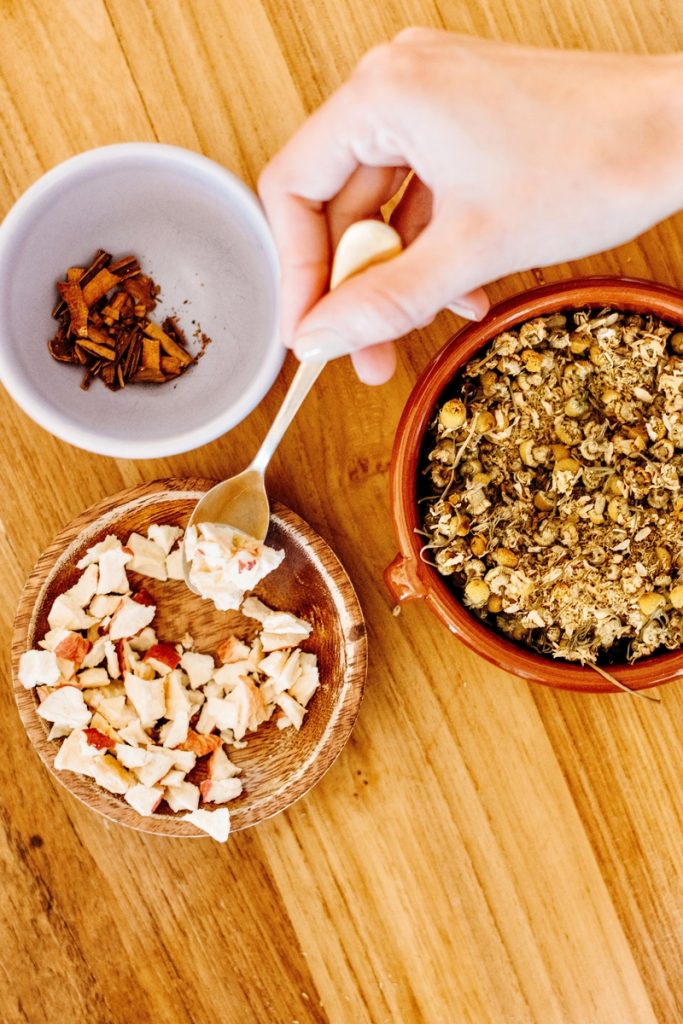
10 Health Benefits Of Black Tea
So, is black tea good for you? Below are 10 health benefits of black tea. Whether you’re trying to cut back on your coffee consumption, create a daily tea ritual, or you’re simply intrigued by the world of tea, sip on these reasons to make black tea a part of your lifestyle.
1. It’s hydrating
That’s right. A popular myth is that tea is dehydrating. However, studies show no difference in urine production (or hydration levels) between tea and water. They concluded that black tea seems to be as hydrating as water when consumed in amounts smaller or equal to six cups per day.
2. Rich in antioxidants
Black tea contains polyphenols—a type of antioxidant. Groups of polyphenols, including catechins, theaflavins, and thearubigins, are the main sources of antioxidants in black tea. All of these can promote overall health, including decreasing the risk of chronic disease.
3. May support heart health
Black tea contains another group of antioxidants called flavonoids, which benefit heart health. Along with black tea, you’ll find flavonoids in certain vegetables, fruits, and dark chocolate. Studies have found that regularly drinking black tea (at least two cups, daily) may help reduce the risk of heart disease.
4. Decreases the risk of stroke
Stroke (a blockage in the blood vessels carrying blood to the brain) is the second leading cause of death, globally. Drinking black tea may be one way to reduce your risk of stroke! Studies show that drinking at least two cups of tea daily may reduce the risk of stroke by 16% compared to people who do not drink tea.
5. Can increase longevity
When it comes to living a long, healthy life, there are a few foundational pieces of the puzzle: minimizing stress, getting restful sleep, eating nutrient-dense foods, spending quality time with loved ones, and finding joyful ways to move your body. Also on this list? Drinking black tea. Drinking at least two cups of black tea daily lowers the risk of death from any cause by almost 13% compared to people who do not drink tea, according to a recent study.
6. Lowers blood sugar levels
Caveat—make sure you’re not dumping teaspoon after teaspoon of added sugar. Drinking black tea (plain) can decrease blood glucose and improve your body’s ability to manage insulin. Research also shows that black tea improves blood sugar levels immediately following meals in normal and pre-diabetic adults. Can’t stand the bitterness of black tea? Try a splash of whole milk, unsweetened non-dairy milk (like coconut or almond), or a packet of monk fruit.
7. Creates steady energy
Unlike herbal infusions, black tea has caffeine (about half the amount in coffee). As mentioned, it also contains an amino acid called L-theanine. These two components help with alertness and focus. While caffeine on its own can induce a more jittery energy, the addition of L-theanine in black tea produces a stable and steady type of energy.
8. May improve gut health
It’s not a secret that gut health is tied to just about every facet of your well-being. Good news! The polyphenols found in black tea may help maintain a healthy gut by promoting the growth of good bacteria and inhibiting the growth of bad bacteria.
9. Can reduce blood pressure
Unfortunately, high blood pressure can increase your risk of everything from heart and kidney failure to vision loss. Fortunately, changes in your diet and lifestyle can lower your blood pressure. A review of studies—looking at the effects of black tea on blood pressure—found that drinking black tea significantly reduced both systolic and diastolic blood pressure.
10. It’s a relaxing ritual
Not only is black tea good for you, but it’s also simple yet beautiful ritual. To make black tea, first boil water. If using store-bought black tea bags, simply add a tea bag to a mug and fill it with the hot water. If using loose leaf tea, use 2–3 grams of tea leaves for every six ounces of water in a strainer. Let the tea steep for 3–5 minutes, depending on your taste preference. After steeping, remove the tea leaves or tea bag from the water. Enjoy in your favorite mug.
Please consult your healthcare provider before consuming black tea, particularly if you are currently on blood thinners, an iron supplement, or thyroid medication.



